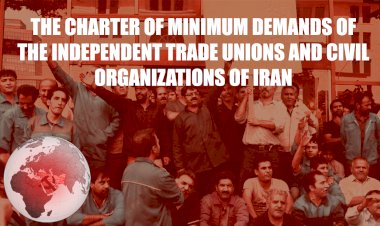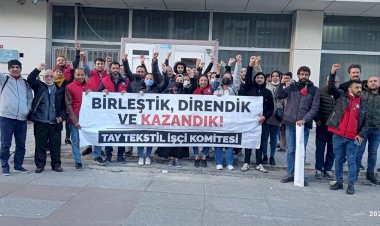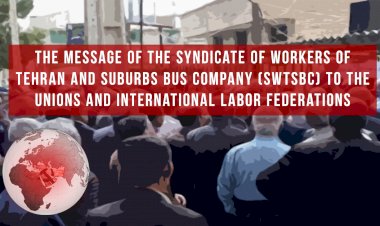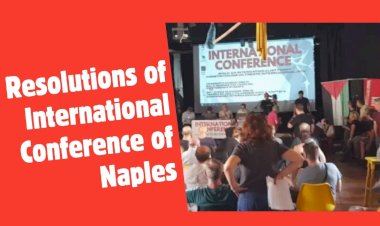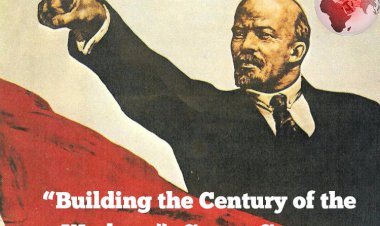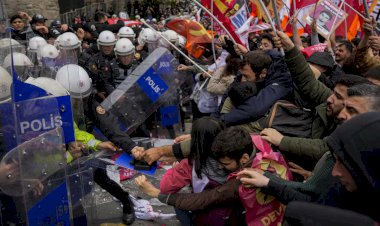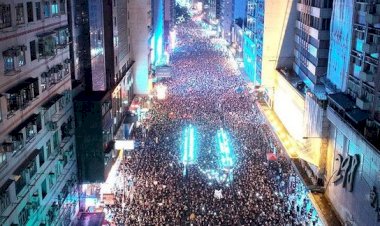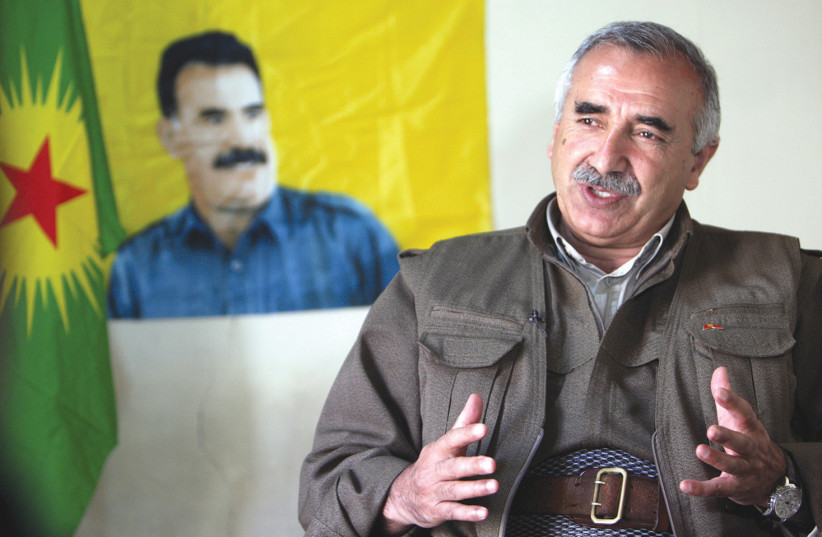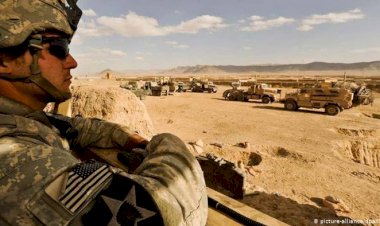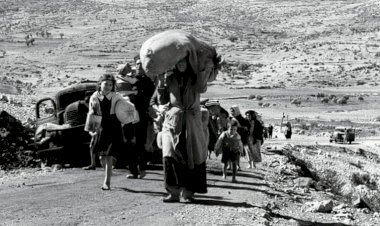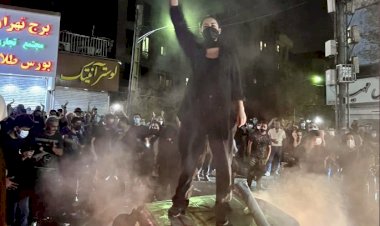Black Panthers, Organization and Power

Elaine Brown, one of the few surviving leaders of the Black Panthers Party, which is the far left wing of the black freedom movement in the USA, made a remarkable interview with the Socialist Worker.Brown's discussion of Black rights, struggle, and the system actually cuts across most social struggles around the world today.*
The Black Panthers organized a fierce struggle against racism and capitalism in the USA in the late 1960s and early 1970s.Revolutionary socialism in the USA experienced its peak after the 1930s with the Black Panthers. The weekly Black Panther had a nationwide circulation of a quarter million at its peak.The image of the Black Panthers is still so strong that it continues to be the subject of many important works.The struggle of Fred Hampton, one of their leaders, who was executed by the FBI, was successfully adapted into a hit movie called Judas and the Black Messiah last year. It is worth mentioning here once again that the Black Panthers, under the leadership of Fred Hampton, broke the racial barrier by uniting the Black struggle, organizations of the white poor people and radical Latino groups against the system.
Black Lives Matter – The Limits of BLM
Even after 50 years, racism continues to exist strongly in the USA. Exactly when the Black Panthers rebelled and Blacks were killed or subjected to violence by the police for trivial reasons is not just a bad memory from the past. These killings keep going and continue to cause massive protests in the United States. The police killing of young Blacks such as Trayvon Martin, Michael Brown, and Eric Garner triggered violent protests across the country and the BLM-Black Lives Matter movement was born. Finally, the brutal murder of George Floyd by drowning in front of the cameras started protests that turned into a social explosion all over the USA.
Elaine Brown made striking statements about BLM and the struggle in her interview. Brown involuntarily compares the present movement with struggle of the pas, of which he was one of the leaders, with the present and adds:"I have said many times that I don’t see where there’s a movement here. There is just a slogan". “The only thing that is similar is the process of becoming aware of the conditions that cause so much pain.” “I don’t see anything like the Black Panther Party or the Student Non-Violent Coordinating Committee or the Southern Christian Leadership Organisation, or any other organisation that has been formed as a result of this collective rage” “Certainly not one that is actually addressing the causes of the problems. Who is dealing with all of the issues that George Floyd’s murder represents, which are the poverty of black people, the continued oppressive state, and so on? I don’t see anyone challenging the United States government.”
No new and radical organization emerged from the massive protests of 2020 that shook the United States. In that sense, Black Panthers leader Brown is right. There is no organization, no revolutionary socialist ideas, and therefore no forces that targeting the system. However, with the economic crisis, the gap between classes and poverty are increasing day by day, while anger against racism and the system is just as strong. Moreover, the researches always give the same result: socialist ideas attracts more youth the USA. But it is not possible to make a leap with angry protests like a flash in the pan and the left flank of the billionaires' party, the Democratic Party, (i.e. the case of Bernie Sanders).
50 Years Ago and the Present
What is the most important difference between 50 years ago and today? The Black Panthers, other revolutionary socialist organizations, the anti-war movement and student organizations…The movement 50 years ago was organized; and moreover, it was much more radical intellectually. Marxism, classism and internationalism deeply influenced the Black Panther Party.
Today, individualist, liberal and identity policies that denigrate organization, power goals and revolution in the USA have invaded the realm of ideas. As a matter of fact, in the field of organized struggle and the characteristics associated with it, such as comradeship, discipline, self-sacrifice, courage and audacity, that are identified with the Black Panthers Party and 1968, it has gone way back. Yet, as Brown emphasizes, if the Black Panthers arouse similar feelings of admiration today, it is precisely because of their revolutionary political culture. However, it is precisely this revolutionary understanding that has been vilified and condemned today. This reactionary wave is a big trouble in itself, because it reduces the struggle to lobbying and pressure groups on corporations, state administrators and the Democratic Party, and exhausts the potential of progressive forces.
No social problem will be solved without overthrowing racist capitalism. We cannot say “another world is possible” without focusing on social revolution, building strong revolutionary organizations for this, raising the struggle of the oppressed, and preserving the class perspective in the meantime. The Black Panthers also had great handicaps, which are beyond the scope of this article, but we must point out that without the qualities we have mentioned, great social transformations are impossible.
Same Global Problem
The shortcomings we talked about in social struggles are not only observed in the USA. Despite the outbursts of anger among the poor and young people against the system in many parts of the world, it is often not possible to deepen the struggle, create a revolutionary tradition and inspire large masses due to both disorganization and intellectual backwardness. In the 20th century, the working class suffered decisive defeats, as a result of which workers' organizations and revolutionary groups suffered great setbacks. And these defeats had a long-term effect, as the bourgeois worldview took over left circles. A new left emerged, the antithesis of the 1968 revolutionary understanding embodied in the Black Panthers. An individualist, post-modernist, NGO-like,culturalist, lobbyist, liberal left… It is of course not in vain that such a left is funded by states and companies all over the world.
Even the title of Brown's book tells us a lot about it. "A Taste of Power—A Black Woman's Story".It is no accident that Brown named his book "A Taste of Power." The Black Panthers represented organized power, being powerful, overthrowing the order and taking the power in their hands. The female Panthers were also the ones who felt this power most intensely. But today, concepts such as power, organization, party, discipline, revolution, etc. have been put in the black list of the post-modern left. Let's not have a specific view of history, let's not be society-centered, but instead believe that reality is established by discourse and the specific experiences of the individuals.
The ideological defeat had become very violent. The end of the storm of 1968, the dissolution of the USSR, the terrible legacy left behind, the start of a crusade on the left against Marxism and the October Revolution; and led to liberal hegemony. The universal collective will of revolutionary socialism against imperialist capitalism has been reduced to micro spheres of the affiliations that are hostile to each other. Escape from class politics became the norm, and the anger, energy and creativity of younger generations was quenched in the prison of identities. Socialist organizations, which did not fight against this counter attack, either migrated to the ranks of post-modernism or dissolved in the process.
A Confrontation Impossible?
The weakness of the revolutionary socialist organized forces is the biggest problem of our age. Although mass movements broke out one after another throughout the world, it is obvious that organized forces lag far behind popular movements that erupt spontaneously.It can be thought that it was inevitable that the revolutionary socialists would disperse after the great defeats in the last century and that the post-modern wave could not be resisted. But that would be fatalism. If the bankruptcy of Stalinism was a case, so was the existence of revolutionary Marxism, and the genuine Marxist tradition could well fill the void. FIT-U, which our comrades established in Argentina with the MST and other Marxist organizations, is a very concrete example in this regard. This example deserves a lot of attention in terms of maintaining the tradition of revolutionary organization and establishing ties with the masses. Conversely, it is a different example that the SWP, which was once very active in Britain, was dragged into crises, weakened but still survived, and when an event occurred in London, the SWP takes the lead. On the other hand, there is the example of the liquidation of ISO, the most influential socialist organization in the USA. We can increase diversity with different examples and different organizational stories around the world. But it is clear that the destruction or complete neutralization of revolutionary socialist organizations was not destiny.
Organized forces are always under the pressure and attacks of the ruling class. These pressures are much stronger during the years of reaction. However, the reason for the existence of the revolutionary organization is to withstand these difficult conditions. For a durable organizational structure, first of all, ideological clarity, tools to connect with youth and workers, hard work, internationalist ties, organizational discipline and strong ties of comradeship are essential.
The crisis of imperialist capitalism in our time, present great opportunities for revolutionary socialists. On the other hand, generally speaking, revolutionary socialists are not active enough to benefit these possibilities. This is a historical problem. There is no short cut way out of the fallback. Searching for shortcuts will lead to loss of political independence, loss of perspective and ultimately degeneration.There is no other way but to build the revolutionary socialist party, become massive and be the attraction pole of the masses over time.
To sum up the article with Brown's words:
“But I would say that every one of the sisters that I knew were all tough broads. And we had to be tough when we joined the party. We didn’t join for some man, we were revolutionaries." “The mainstream women’s liberation politics of the time, represented by people such as Gloria Steinem and her Ms. magazine, wasn’t arguing for fundamental change in America. They just wanted to make sure women broke through the glass ceiling, so that we too could oppress people and become corporate leaders like men did.” “But the Black Panther Party, and the parties we were affiliated with, were the only organisations that identified the question of women’s liberation and gay liberation as a part of our overall struggle.” “My old comrades and I talk about it even now, and we say it was the best time of our lives and we were putting our lives on the line. We loved the party. We loved being in the party. We loved it though it was hard.”



